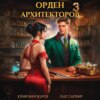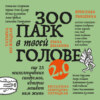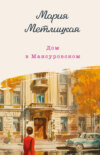Kitobni o'qish: «The Legend of Ulenspiegel. Volume 2 of 2», sahifa 15
“Shame upon you,” said Ulenspiegel, “shame upon us: word of a soldier no longer word of gold.”
“Wilt thou hold thy tongue, mule!” said Messire de Lumey.
“Shame upon thee,” said Ulenspiegel; “word of a soldier is no more word of gold. Punish rather the rascally vendors of human fat.”
Then Messire de Lumey, rushing on him, raised his hand to strike him.
“Strike,” said Ulenspiegel; “I am thy prisoner, but I have no fear of thee; word of a soldier is no more word of gold.”
Messire de Lumey then drew his sword and would certainly have slain Ulenspiegel if Messire de Tres-Long, holding back his arm, had not said:
“Have pity! he is brave and valiant; he hath committed no crime!”
De Lumey, then controlling himself:
“Let him ask pardon,” said he.
But Ulenspiegel, remaining upright:
“I will not,” said he.
“Let him say at least that I was not wrong,” cried de Lumey, becoming furious.
Ulenspiegel made answer:
“I do not lick the boots of lords: word of a soldier is no more word of gold.”
“Let them erect the gallows,” said de Lumey, “and let them bring him to it; that will be a hempen word for him.”
“Aye,” said Ulenspiegel, “and I shall cry out in the presence of all the people: ‘Word of a soldier is no more word of gold!’”
The gallows was set up on the great marketplace. The news ran swiftly about the town that they were about to hang Ulenspiegel, the valiant Beggar. And the people were moved with pity and compassion. And they ran together in a crowd to the great market; Messire de Lumey came thither also on horseback, wishing himself to give the signal for the execution.
He looked with no mildness upon Ulenspiegel on the ladder, arrayed for death, in his shirt, his arms tied to his body, his hands folded, the rope about his neck, and the executioner ready to do his work.
Tres-Long said to him:
“Monseigneur, pardon him; he is no traitor, and no one ever saw a man hanged because he was sincere and merciful.”
And the men and women of the people, hearing Tres-Long speak, cried: “Pity, Monseigneur, grace and pity for Ulenspiegel.”
“That mule-headed fellow braved me,” said de Lumey: “let him repent and say I did right.”
“Wilt thou repent and say that he did right?” said Tres-Long to Ulenspiegel.
“Word of a soldier is no more word of gold,” replied Ulenspiegel.
“Put on the rope,” said de Lumey.
The executioner was about to obey; a young girl, all clad in white and garlanded with flowers, ran up the stairs of the scaffold, leaped on Ulenspiegel’s neck, and said:
“This man is mine; I take him for my husband.”
And the people applauded and the women cried out:
“Long live, long live the girl who is Ulenspiegel’s saviour!”
“What is this?” asked Messire de Lumey.
Tres-Long answered:
“After the use and custom of the town, it is by right and law that a young maiden and unmarried woman can save a man from the rope by taking him for husband at the foot of the gallows.”
“God is with him,” said de Lumey; “untie him.”
Then riding up to the scaffold, he saw the girl prevented from cutting Ulenspiegel’s ropes and the executioner seeking to oppose her efforts and saying:
“If you cut them, who will pay for them?”
But the girl paid no heed to him.
Seeing her so light, so loving, and so subtle, he was touched.
“Who art thou?” said he.
“I am Nele, his betrothed,” said she, “and I come from Flanders to seek him.”
“Thou didst well,” said de Lumey in a naughty voice.
And he went away.
Tres-Long then coming up:
“Little Fleming,” said he, “once thou art married wilt thou be a soldier still in our ships?”
“Aye, Messire,” answered Ulenspiegel.
“And thou, girl, what wilt thou do without thy man?” Nele answered:
“If you are willing, Messire, I will be fifer in his ship.”
“I am willing,” said Tres-Long.
And he gave her two florins for the wedding feast.
And Lamme, weeping and laughing with pleasure, said:
“Here are three florins more: we shall eat it all; I am paying. Let us go to the Golden Comb. He is not dead, my friend. Long live the Beggar!”
And the people applauded, and they went off to the Golden Comb, where a great feast was ordered: and Lamme threw deniers to the people out of the windows.
And Ulenspiegel said to Nele:
“Darling beloved, there thou art then beside me! Hurrah! She is here, flesh, heart, and soul, my sweet friend. Oh! the sweet eyes and lovely red lips whence there came never aught but kind words! She saved my life, the dear beloved! Thou shalt play the fife of deliverance on our ships. Dost thou remember … but no… Ours is the present hour full of gladness, and mine thy face sweet as June flowers. I am in paradise. But,” said he, “thou art weeping…”
“They have killed her,” said she.
And she told him the tale of mourning.
And, looking on one another, they wept with love and grief.
And at the feast they drank and ate, and Lamme looked on them woefully, saying:
“Alas! my wife, where art thou?”
And the priest came and married Nele and Ulenspiegel.
And the morning sun found them one beside the other in their bridal bed.
And Nele lay with her head on Ulenspiegel’s shoulder. And when she awoke in the sunshine, he said:
“Fresh face and sweet heart, we shall be the avengers of Flanders.”
She, kissing him on the mouth:
“Wild head and stout arms,” said she, “God will bless the fife and the sword.”
“I will make thee a soldier’s garb.”
“At once?” said she.
“At once,” replied Ulenspiegel; “but who said that strawberries are good in the morning? Thy mouth is far better.”
IX
Ulenspiegel, Lamme, and Nele had, like their friends and comrades, taken from the convents the wealth gotten from the people by the help of processions, feigned miracles, and other Roman mummeries. This was against the orders of the Silent, the prince of liberty, but the money helped with the charges of the war. Lamme Goedzak, not content with providing himself with money, looted from out the convents hams, sausages, flasks of beer and wine, and came back from them joyously carrying across his breast a baldric of fowls, geese, turkeys, capons, hens and pullets, and leading behind him on a rope certain monastical calves and pigs. And this by right of war, said he.
Rejoicing in each prize, he fetched it to the ship that there might be revel and feast, but lamented all the same that the master cook was so ignorant in the science of sauces and fricassees.
Now on that day the Beggars, having looked victoriously upon the cup, said to Ulenspiegel:
“Thou hast thy nose always in the wind to smell out news of terra firma; thou knowest all the adventures of the war: sing them to us. And Lamme shall beat the drum the while and the pretty little fifer shall squeal to the measure of thy song.”
And Ulenspiegel said:
“One bright cool day in May, Ludwig of Nassau, thinking to enter into Mons, finds not his footmen nor his horse. A few trusty men held a gate open and a drawbridge down, that he might have the town. But the citizens seized the gate and the drawbridge. Where are the soldiers of Count Louis? The citizens are about to hoist up the bridge. Count Louis winds his horn.”
And Ulenspiegel sang:
“Where are thy footmen and thy horse?
They are in the woods, treading all down:
Dry twigs, and lily of the valley in bloom.
Master Sun makes all shine,
Their ruddy warrior faces,
The polished rumps of their horses;
Count Ludwig winds his horn:
They hear it. Softly beat the drum.
“Full trot, bridle loose!
Speed of the lightning, speed of the cloud:
Water spout of clinking iron;
They fly, the heavy horsemen!
Haste! haste! to the rescue!
The bridge rises… Send the spur
Into the chargers’ bloody flanks.
The bridge rises: The town is lost!
“They are before it. Is it too late?
Ride like the wind! Bridle loose!
Guitoy de Chaumont on his Spanish steed
Leaps on the bridge that falls again.
The town is won! Do ye hear
Along the paven streets of Mons
Speed of the lightning, speed of the cloud,
Waterspout of clinking iron!
“Hurrah for Chaumont and his Spanish steed!
Sound the clarion of joy, beat upon the drum:
’Tis the hay month, fragrant are the meadows;
The lark mounts up, singing in the sky:
Long live the bird of freedom!
Beat upon the drum of glory.
Hurrah for Chaumont and the Spanish steed.
Hey there. Drink up there.
The town is won!.. Long live the Beggar!”
And the Beggars sang on the ships: “Christ look down upon thy soldiers. Furbish our weapons, Lord. Long live the Beggar!”
And Nele, smiling, made the fife squeal amain, and Lamme beat the drum, and aloft, towards the sky, God’s temple, there were raised golden cups and hymns of liberty. And the waves, like sirens, bright and cool about the ships, murmured in harmony.
X
One day in the month of August, a hot and heavy day, Lamme was plunged in melancholy. His jolly drum was dumb and sleeping, and he had thrust the drumsticks into the mouth of his satchel. Ulenspiegel and Nele, smiling with amorous delight, were warming themselves in the sun: the look-out men stationed in the tops were whistling or singing, searching over the wide ocean if they could not see some prey on the horizon. Très-Long kept questioning them; they still replied: “Niets,” nothing.
And Lamme, pale and broken down, sighed piteously. And Nele said to him:
“Whence cometh it, Lamme, that thou art so woebegone?”
And Ulenspiegel said to him:
“Thou art growing thin, my son.”
“Aye,” said Lamme, “I am woebegone and thin. My heart loses its gaiety and my jolly face its freshness. Aye, laugh at me, ye that have found one another again through a thousand perils. Mock you at poor Lamme, who lives a widower, being married, while she,” said he, pointing to Nele, “must needs tear her man away from the kisses of the rope, his last lover. She did well, God be praised; but let her not laugh at me. Aye, thou must not laugh at poor Lamme, Nele, my dear. My wife laughs enough for ten. Alas, ye females, ye are cruel towards others’ woes. Aye, I have a grieved heart, stricken with the sword of desertion, and nothing will ever comfort it, if not she.”
“Or some fricassee,” said Ulenspiegel.
“Aye,” said Lamme, “where is the meat in this miserable ship? On the king’s vessels, they have meat four times a week, if there be no fast, and fish three times. As for the fish, God destroy me if this tow – I mean their flesh – does anything but kindle my blood for nothing, my poor blood that will go to water before long. They have beer, cheese, soup, and good drink. Aye! they have everything for the comfort of their stomachs: biscuit, rye bread, beer, butter, smoked meat, yea, all, dried fish, cheese, mustard seed, salt, beans, peas, barley, vinegar, oil, tallow, wood, and coal. We, we have just been forbidden to take the cattle of any so-ever, be he citizen, abbot, or gentleman. We eat herrings and drink small beer. Alas! I have nothing left now: neither love of women, nor good wine, nor dobbele-bruinbier, nor good food. Where are our joys here?”
“I will tell thee, Lamme,” answered Ulenspiegel. “Eye for eye, tooth for tooth: at Paris, on Saint Bartholomew’s night, they killed ten thousand free hearts in Paris city alone; the king himself shot at his folk. Awake, Fleming; seize the axe without mercy: there are our joys; smite the Spaniard and Roman enemy wherever thou shalt find him. Let be thy eatables. They have taken the dead or living victims to their rivers, and by full cartloads, and have flung them in the water. Dead or alive, dost thou hear, Lamme? The Seine ran red for nine days, and the ravens settled down in clouds upon the town. At La Charité, at Rouen, Toulouse, Lyons, Bordeaux, Bourges, Meaux, terrible was the massacre. Seest thou the troops of dogs satiate with eating, lying beside the bodies? Their teeth are tired. The flight of the ravens is heavy, so laden are their stomachs with the flesh of the victims. Hearest thou, Lamme, the voice of their spirits crying vengeance and pity? Awake, Fleming! Thou dost speak of thy wife. I do not believe her unfaithful, but bereft of her wits, and she loveth thee still, poor friend of mine: she was not among those court ladies who on the very night of the massacre stripped the bodies with their fine hands to see how great or how small were their carnal members. And they laughed, these ladies great in lewdness. Rejoice, my son, notwithstanding thy fish and thy small beer. If the after taste of the herring is insipid, more insipid still is the smell of this foulness. Those that slew took their meals, and with ill-washen hands carved fat geese to offer the wings, legs, and rump to the charming Paris damozels. They had but lately felt other meat, cold meat.”
“I will complain no more, my son,” said Lamme, rising up: “the herring is ortolan; malvoisie is small beer to free hearts.”
And Ulenspiegel said:
“Long Live the Beggar! Let us not weep, brothers.
In ruins and blood
“Flowers the rose of liberty.
If God is with us, who shall be against?
“When the hyæna triumphs,
Comes the lion’s turn,
With one stroke of his paw he flings him, disbowelled, on the ground.
Eye for eye, tooth for tooth. Long live the Beggar!”
And the Beggars on the ship sang:
“The Duke keeps the same fate for us.
Eye for eye, tooth for tooth,
Wound for wound. Long live the Beggar!”
XI
On a black night the tempest growled in the depths of the clouds. Ulenspiegel was on the deck of the ship with Nele, and said:
“All our lights are out. We are foxes, watching by night for the passing of the Spanish poultry, which is to say their two and twenty assabres, rich ships with lanterns burning, that will be to them stars of ill fortune. And we shall rush upon them.”
Nele said:
“This night is a witches’ night. This sky is black as the mouth of hell; these lightnings gleam like the smile of Satan; the distant thunderstorm is growling dully; the sea-mews pass, uttering loud cries; the sea rolls its phosphorescent waves like silver serpents. Thyl, my beloved, come into the world of the spirits. Take the powder of vision.”
“Shall I see the Seven, my darling?”
And they took the powder of vision.
And Nele shut Ulenspiegel’s eyes, and Ulenspiegel shut Nele’s eyes. And they beheld a cruel spectacle.
Heaven, earth, sea were full of men, of women, of children, toiling, wandering, journeying, or dreaming. The sea cradled them; the earth carried them. And they swarmed like eels in a basket.
Seven men and women were in the middle of the firmament, seated upon thrones, their brows girt with a brilliant star, but they were so shadowy that Nele and Ulenspiegel could see only their stars with any distinctness.
The sea rose up to the sky, tumbling in its foam the innumerable multitude of ships whose masts and rigging clashed together, interlocked, broke one another, crushed each other, following the tempestuous moving of the waves. Then one ship appeared in the midst of all the others. Its bottom was of flaming iron. Its keel was made of steel shaped and sharpened like a knife. The water cried out, groaning, when it went through. Death was upon the stern of the ship, seated, grinning, holding his scythe in one hand and in the other a whip which he smote upon seven personages. One was a man woebegone, thin, haughty, silent. He held in one hand a sceptre and in the other a sword. Beside him, mounted upon a goat, there was a ruddy girl, with bared breast, her robe open, and a sprightly eye. She was stretched out lasciviously beside an old Jew picking up bits of rubbish and a big bloated fellow that fell down every time she set him on his feet, while a thin and angry woman beat them both. The big man never avenged himself nor did his red-faced she-companion. A monk in their midst was eating sausages. A woman lying on the earth, was crawling like a serpent among the others. She bit the old Jew because of his old rubbish, the bloated man because he was too comfortable, the red woman for the dewy brightness of her eyes, the monk for his sausage, and the thin man because of his sceptre. And soon all of them fell a-fighting.
When they passed, the battle was horrible on the sea, in the sky, and on the earth. It rained blood. The ships were broken with blows of axes, arquebuses, and cannon shot. The shattered fragments flew into the air in the midst of the powder smoke. On the earth armies clashed together like walls of bronze. Towns, villages, harvests burned amid cries and tears: tall spires, stone lace-work, held up their proud silhouettes in the midst of the fire, then fell down with a crash like oak trees laid low. Black horsemen, numerous and close arrayed as bands of ants, sword in hand, pistol in hand, were smiting men, women, children. Some made holes in the ice and buried old men alive in them; others cut off women’s breasts and sprinkled pepper on the place; others hanged children in the fireplaces. Those who were tired of killing violated some girl or some woman; drank, played dice, and tossing over piles of gold, the fruit of pillage, dabbled their red fingers in it.
The Seven, crowned with stars, cried: “Pity for the poor world!”
And the phantoms grinned with laughter. And their voices were as the voices of a thousand sea-eagles crying together. And Death brandished his scythe.
“Dost thou hear them?” said Ulenspiegel; “they are the birds of prey of poor mankind. They live on small birds, which are the simple and the good.”
The Seven, crowned with stars, cried: “Love, justice, compassion!”
And the Seven phantoms laughed loudly. And their voices were like the voices of a thousand sea-eagles crying all together. And Death struck them with his whip.
And the ship passed over the sea, cutting in two boats, vessels, men, women, children. On the sea reëchoed the plaints of the victims crying: “Pity!”
And the red ship passed over them all, while the phantoms, laughing, cried like sea-eagles.
And Death, laughing loud, drank the water that was full of blood.
And the ship having disappeared in the mist, the battle ceased, and the Seven crowned with stars vanished away.
And Ulenspiegel and Nele saw nothing now save the black sky, the surging sea, the dark clouds coming forward on the phosphorescent sea, and close at hand, red stars.
These were the lanterns of the two and twenty assabres. The sea and the thunder were growling dully and faintly.
And Ulenspiegel rang the bell for the wacharm softly, and cried: “The Spaniard, the Spaniard! He is sailing for Flessingue!” And the cry was repeated throughout the whole fleet.
And Ulenspiegel said to Nele:
“A gray hue is spreading over the sky and over the sea. The lanterns burn now but feebly; the dawn lifts, the wind is freshening, the waves throw their spume over the decks of the ships; a thick rain is falling and speedily ceases; the sun rises radiant, gilding the crest of the waves: it is thy smile, Nele, fresh as the morning, sweet as the sun’s ray.”
The two and twenty assabres pass: on the ships of the Beggars the drums are beating, the fifes are squealing: de Lumey cries: “In the Prince’s name, to the chase!” Ewout Pietersen Wort, sub-admiral, cries: “In the name of Monseigneur d’Orange and the admiral, to the chase!” On all the ships, the Johannah, the Swan, Anne-Mie, the Beggar, the Compromise, the d’Egmont, the de Hoorn, on the Willem de Zwyger (the William the Silent,) all the captains cry: “In the name of Monseigneur d’Orange and the admiral!”
“To the chase! Long live the Beggar!” cry the soldiers and sailors. Très-Long’s houlque, on which are Lamme and Ulenspiegel, and called Briele, followed closely by the Johannah, the Swan, and the Beggar, take four assabres. The Beggars fling everything Spanish into the sea, make the inhabitants of the Low Countries prisoners, empty the ships like eggshells, and leave them to float without masts or sails in the roadstead. Then they pursue the other eighteen. The wind blows violently; coming from Antwerp, the sides of the swift ships bend over in the water of the river beneath the weight of the sails swollen like a monk’s cheeks in the wind that comes from kitchens; the assabres go swiftly; the Beggars pursue them into the very roadstead of Meddleburg under the fire from the forts. There a bloody battle joins: the Beggars carrying axes rush on the decks of the ships, soon strewn with lopped-off arms and legs, that have to be thrown into the waves after the combat ends. The forts fire on them: they take no heed, and to the shout of “Long live the Beggar!” take from out the assabres powder, artillery, bullets, and corn; burn the boats when they have emptied them; and make off to Flessingue, leaving them smoking and flaming in the roadsteads.
From there they will send squadrons to pierce the dykes of Zealand and Holland, to help in the construction of fresh ships, and notably of flyboats of one hundred and forty tons carrying up to twenty cannon of cast iron.










